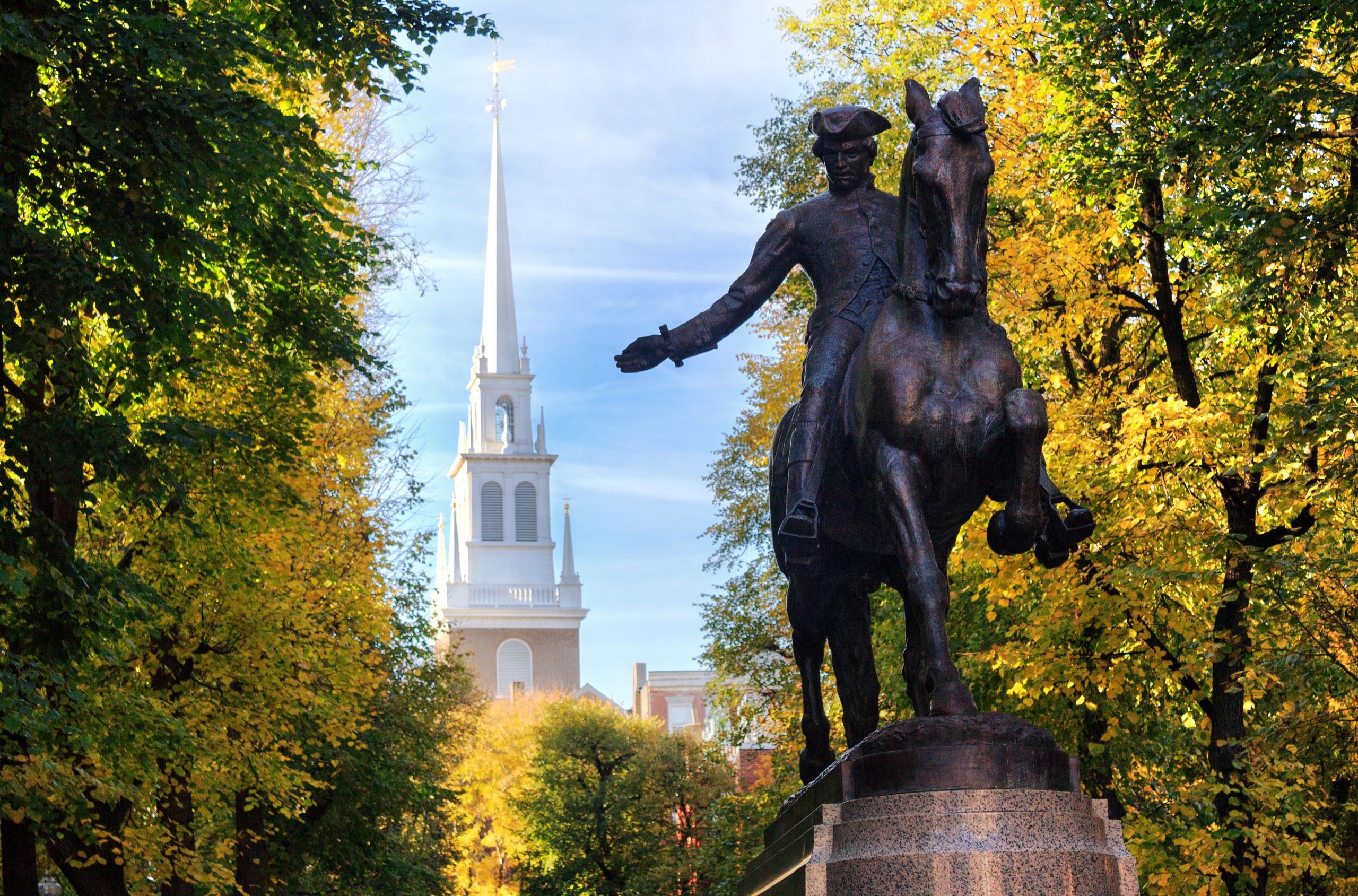Two hundred and fifty years ago today, American silversmith Paul Revere embarked on his historic ride, dashing on horseback from Boston to Lexington, Mass.—all along the way alerting the colonists and the Minutemen militia of the imminent attack upon our fledgling nation by the British Army.
We currently find ourselves facing a new, but no less serious threat to our Constitutional democracy—still young by global standards—from an administration that is breaking norms, laws, and the Constitution itself as it seizes and accumulates unprecedented power in the Executive Branch.
[time-brightcove not-tgx=”true”]
Put most simply, Donald Trump is trying to enact his agenda by whatever means he feels are available to him, the Constitution just a nuisance rather than the rule of law. The problem is that the means he is using—unilaterally dismantling entire government agencies, taking upon himself the unchecked power to determine appropriations as well as economy-defining trade policy, using executive orders in place of Congressional enactments, using the power of the government to settle old scores, “disappearing” people off the streets without due process, and laying the groundwork for defying court orders—violate the basic premise and purpose of the Constitution, which is the separation of powers, the most fundamental protection of our liberty.
The cumbersome nature of our system is not a bug—it is the principal feature which the Framers relied upon to protect the liberties of our people from the inevitable abuse inherent in the concentration of power. Madison put it succinctly in Federalist 47: “The accumulation of all powers, legislative, executive, and judiciary, in the same hands…may justly be pronounced the very definition of tyranny.” Later in the same essay, he defines the stakes: “There can be no liberty where the legislative and executive powers are united in the same person.”
Read More: Can a U.S. Citizen Be Deported? Trump’s Comments Raise Legal Alarms
I don’t believe it’s an overstatement to compare this threat with that which Paul Revere faced on that Spring night in Boston so long ago—only this time it falls to us to answer the call.
This begins by our acknowledging that today’s challenge should not be a Republican or Democratic issue, or merely the politics of the moment. No, this goes to the most fundamental safeguard of our freedom: the very infrastructure of Democracy, which is designed to keep absolute power out of one set of hands. People can differ on the need or desirability of USAID or the Department of Education, and that discussion should take place—but it should take place in Congress, with the input of the President to be sure, but the ultimate decision—and responsibility—lies with the House and the Senate.
Which brings us to this moment. I believe that what is happening now is the most serious challenge to the Constitution and the bedrock principle of checks and balances our country has ever faced. The problem is the dramatic and far-reaching usurpation of legislative authority in the pursuit of that agenda, and if the Congress doesn’t act, it will be the most serious abdication of such authority by any Congress in our history.
Again, this is not a partisan issue; those supporting the unconstitutional means because they like the policy ends should be mindful of the basic rule of political gravity in Washington: what goes around, comes around. I don’t want a future Democratic President to have the powers being reached for by this White House, for instance. And I suspect my Republican colleagues don’t either.
So what do we do? We have three avenues available to us to protect our system of government. One line of defense is the courts, where the overreach and law-breaking is being partially reined in in courtrooms across the nation.
Another vital bulwark should be the Congress, but thus far, the Republican majorities have avoided acknowledging the problem, let alone taking meaningful steps to address it. It’s time to recommit ourselves to the oath we all took to “support and defend the Constitution of the United States against all enemies, foreign and domestic.” (Interesting that the Framers anticipated ‘domestic’ enemies, and that they felt that defending the Constitution was our most solemn duty.) I’m doing all I can to wake my reluctant colleagues to this threat, but I could use some help, which brings me to the most vital line of defense: the American people.
Make your voices heard, share your stories, spell out your concerns with your friends, speak out at community gatherings—and yes, online—but most especially with your members of Congress. If you exert enough pressure on your elected officials, it will break through the politics of the moment. Democracy cannot be a spectator sport, especially at this time. Apathy is not an option.
Two hundred and fifty years ago, Americans were roused to action when the call came, and they stood firm against the loss of their liberty. Today, We the People face a new threat, and it’s up to us to stand once again in defense of our country.

